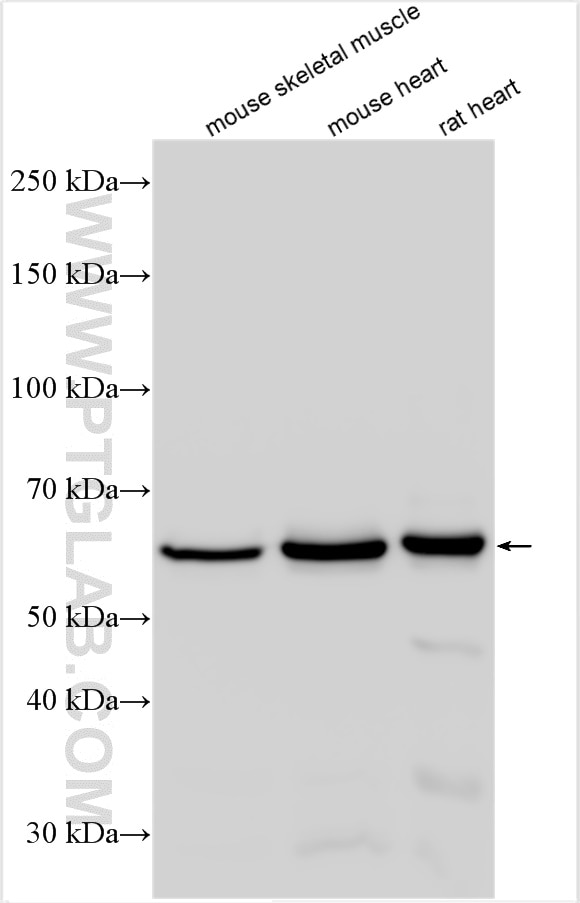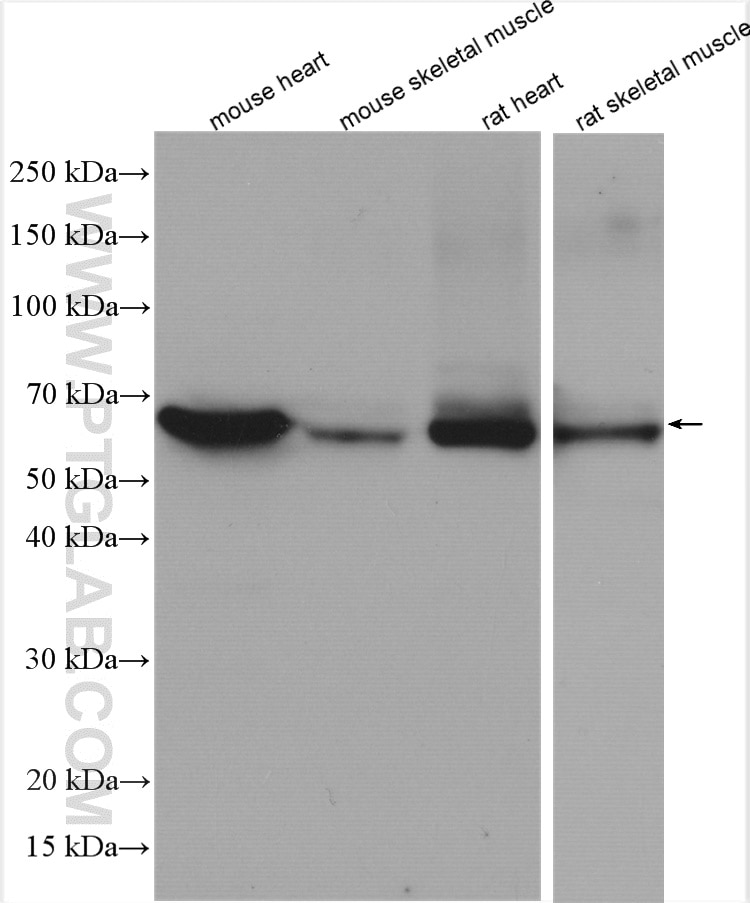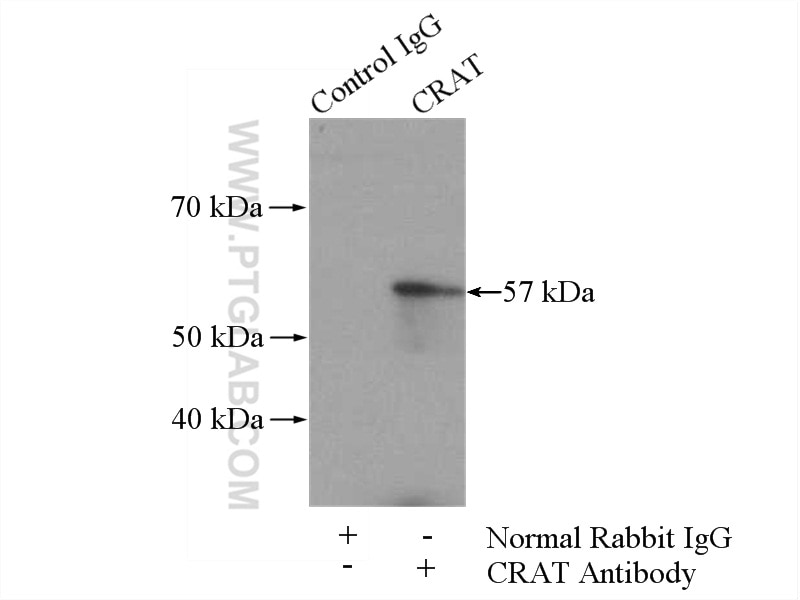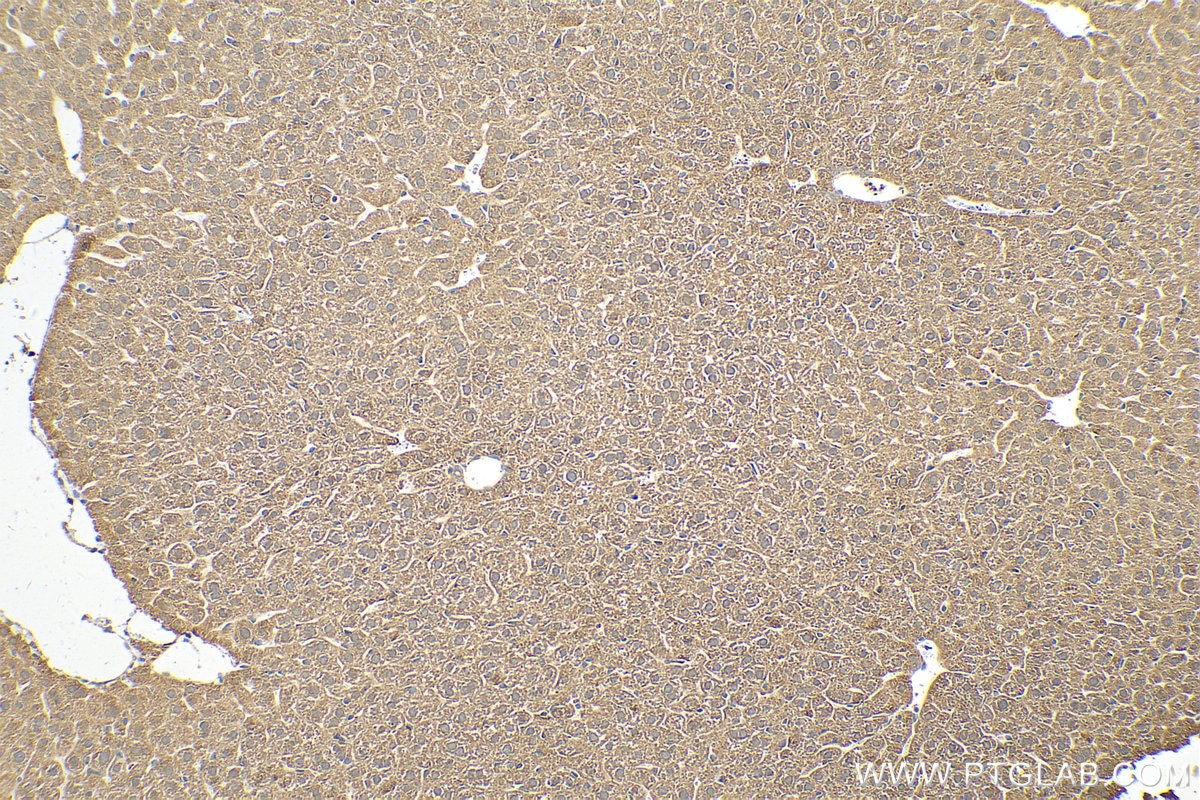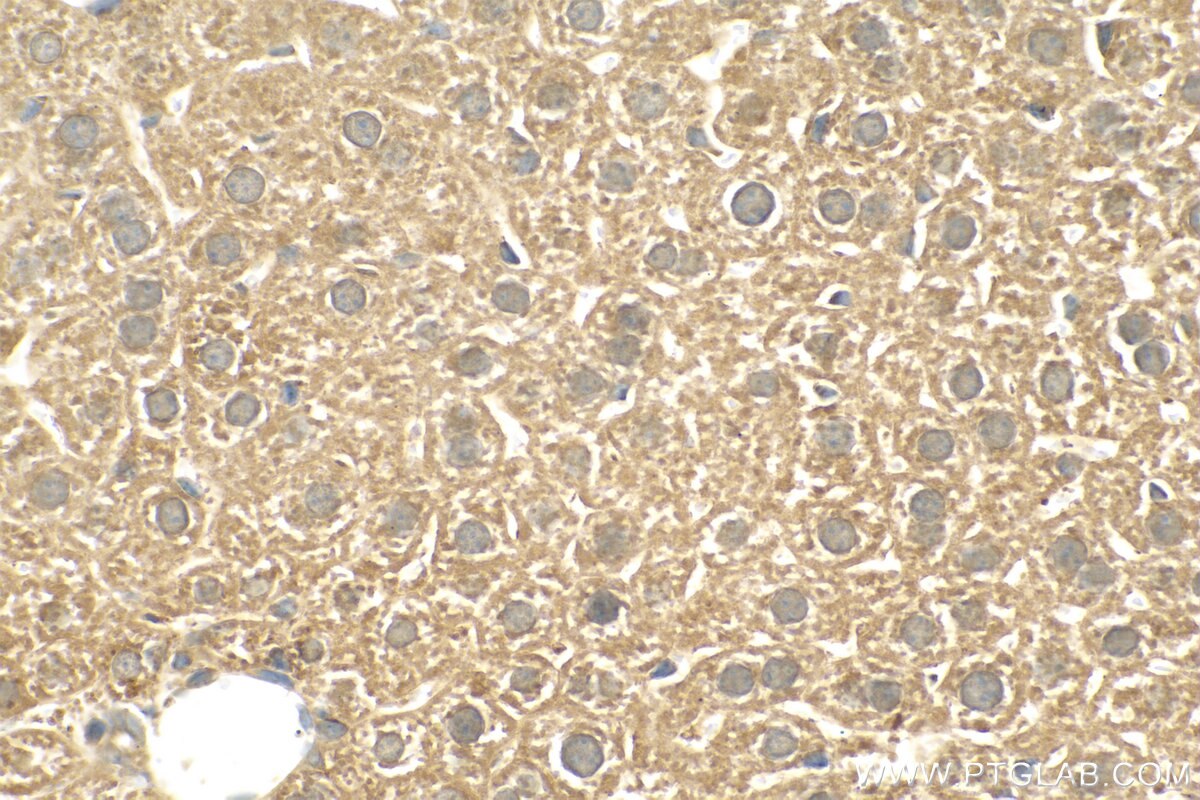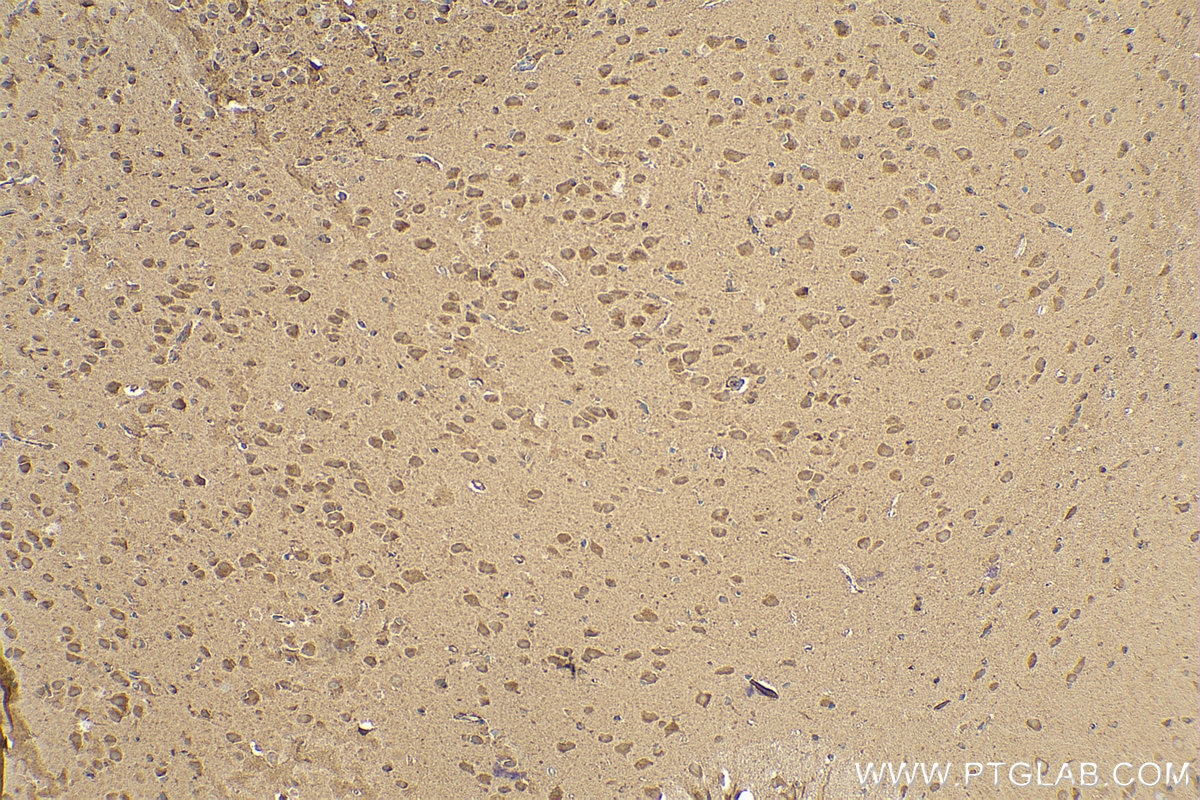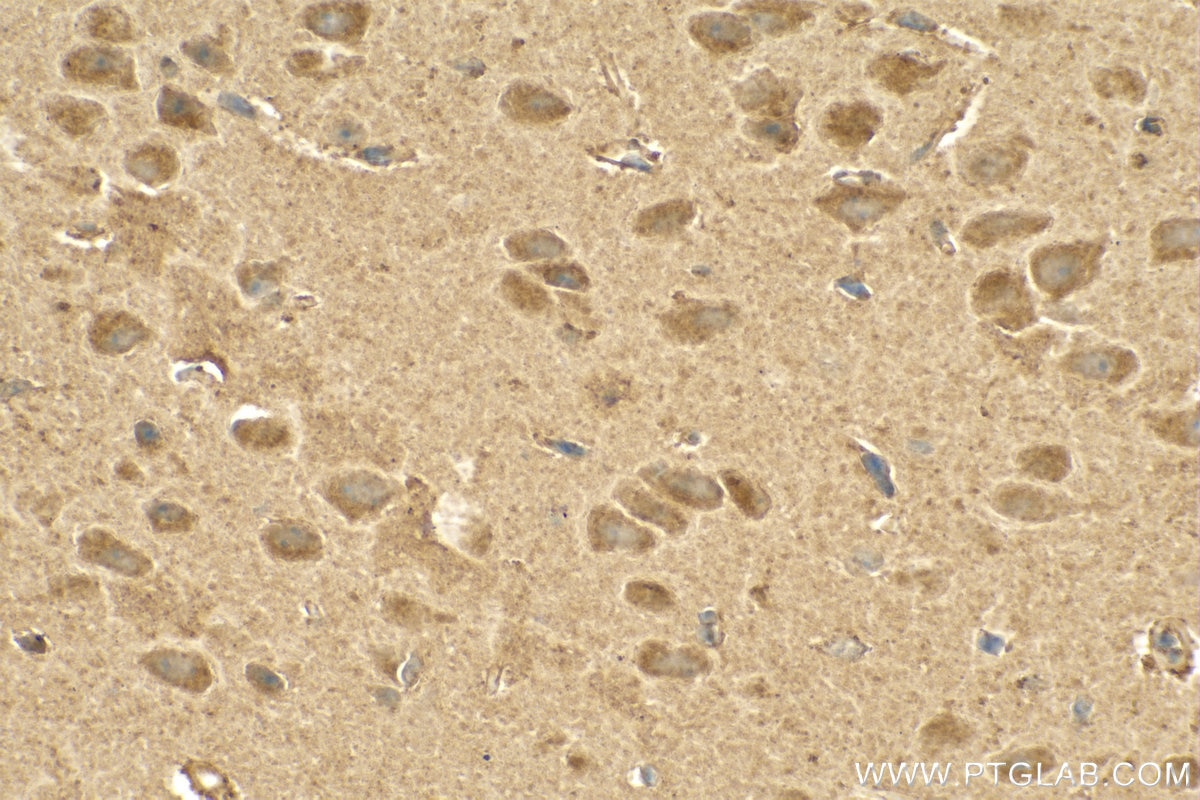Validation Data Gallery
Tested Applications
| Positive WB detected in | mouse skeletal muscle tissue, mouse heart tissue, rat skeletal muscle, rat heart tissue |
| Positive IP detected in | mouse skeletal muscle tissue |
| Positive IHC detected in | mouse brain tissue, mouse liver tissue Note: suggested antigen retrieval with TE buffer pH 9.0; (*) Alternatively, antigen retrieval may be performed with citrate buffer pH 6.0 |
Recommended dilution
| Application | Dilution |
|---|---|
| Western Blot (WB) | WB : 1:800-1:8000 |
| Immunoprecipitation (IP) | IP : 0.5-4.0 ug for 1.0-3.0 mg of total protein lysate |
| Immunohistochemistry (IHC) | IHC : 1:250-1:1000 |
| It is recommended that this reagent should be titrated in each testing system to obtain optimal results. | |
| Sample-dependent, Check data in validation data gallery. | |
Published Applications
| KD/KO | See 3 publications below |
| WB | See 11 publications below |
Product Information
15170-1-AP targets CRAT in WB, IHC, IP, ELISA applications and shows reactivity with human, mouse, rat samples.
| Tested Reactivity | human, mouse, rat |
| Cited Reactivity | human, mouse, rat, sheep, goat |
| Host / Isotype | Rabbit / IgG |
| Class | Polyclonal |
| Type | Antibody |
| Immunogen | CRAT fusion protein Ag7422 相同性解析による交差性が予測される生物種 |
| Full Name | carnitine acetyltransferase |
| Calculated molecular weight | 71 kDa |
| Observed molecular weight | 62-68 kDa |
| GenBank accession number | BC000723 |
| Gene Symbol | CRAT |
| Gene ID (NCBI) | 1384 |
| RRID | AB_2229978 |
| Conjugate | Unconjugated |
| Form | Liquid |
| Purification Method | Antigen affinity purification |
| UNIPROT ID | P43155 |
| Storage Buffer | PBS with 0.02% sodium azide and 50% glycerol , pH 7.3 |
| Storage Conditions | Store at -20°C. Stable for one year after shipment. Aliquoting is unnecessary for -20oC storage. |
Background Information
CRAT, also named as CAT1, belongs to the carnitine/choline acetyltransferase family. It is specific for short chain fatty acids. CRAT seems to affect the flux through the pyruvate dehydrogenase complex. It may be involved as well in the transport of acetyl-CoA into mitochondria. Carnitine palmitoyltransferase (CPT) deficiencies are common disorders of mitochondrial fatty acid oxidation. The CPT system is made up of two separate proteins located in the outer (CPT1) and inner (CPT2) mitochondrial membranes. CRAT is an active forms for carnitine acetyltransferase. This antibody can bind the close sequences genes.
Protocols
| Product Specific Protocols | |
|---|---|
| WB protocol for CRAT antibody 15170-1-AP | Download protocol |
| IHC protocol for CRAT antibody 15170-1-AP | Download protocol |
| IP protocol for CRAT antibody 15170-1-AP | Download protocol |
| Standard Protocols | |
|---|---|
| Click here to view our Standard Protocols |
Publications
| Species | Application | Title |
|---|---|---|
Cell Metab Dissociation of Muscle Insulin Resistance from Alterations in Mitochondrial Substrate Preference. | ||
Cancer Res Organelle-Derived Acetyl-CoA Promotes Prostate Cancer Cell Survival, Migration, and Metastasis via Activation of Calmodulin Kinase II. | ||
Redox Biol TGF-β1 attenuates mitochondrial bioenergetics in pulmonary arterial endothelial cells via the disruption of carnitine homeostasis.
| ||
Antioxid Redox Signal Disruption of endothelial cell mitochondrial bioenergetics in lambs with increased pulmonary blood flow. | ||
Mol Metab Carnitine acetyltransferase (CRAT) expression in macrophages is dispensable for nutrient stress sensing and inflammation. | ||
Heliyon Stable isotope-labeled carnitine reveals its rapid transport into muscle cells and acetylation during contraction |
